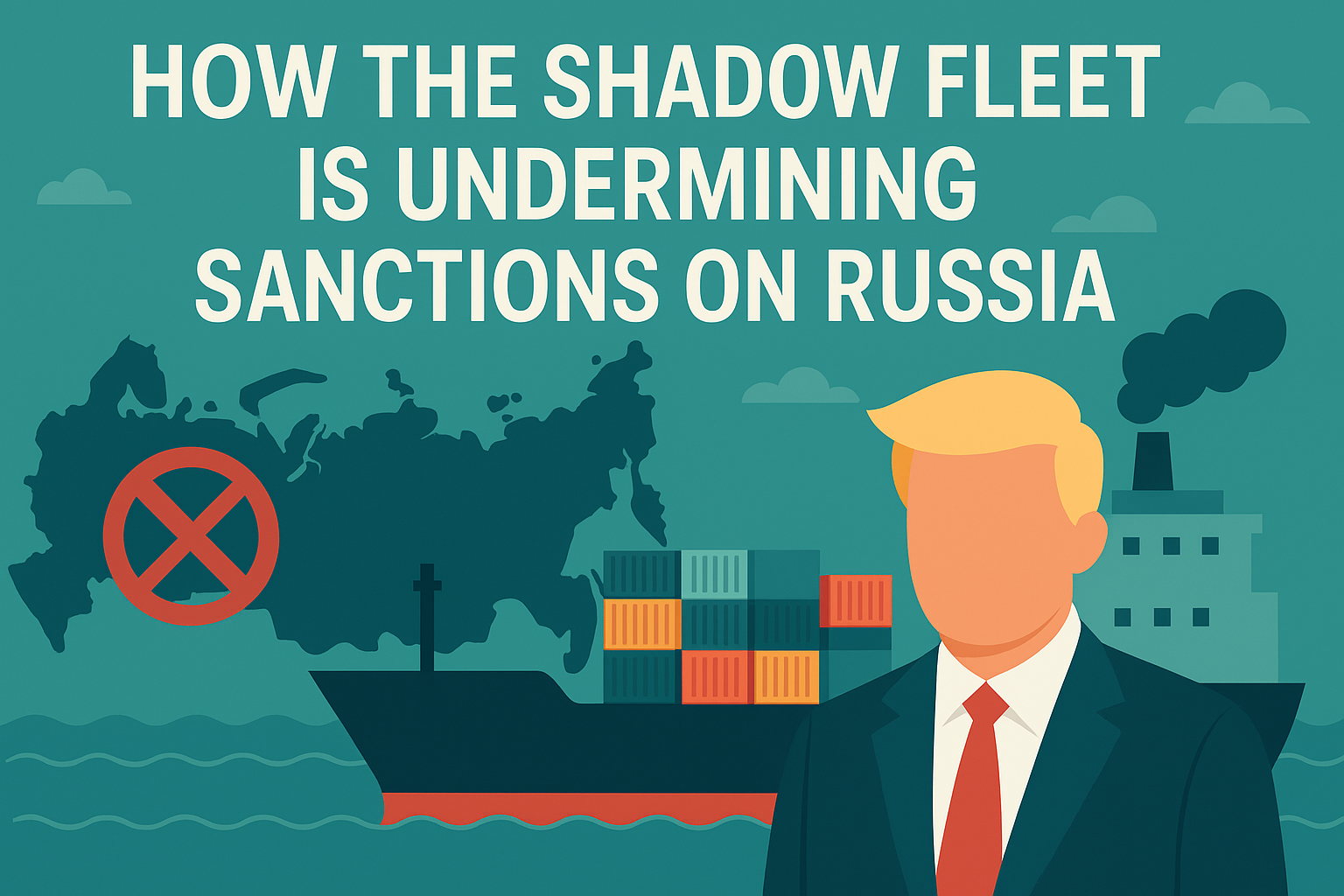- The “Shadow Fleet” is reshaping energy geopolitics by quietly neutralizing Western sanctions.
- What Is the Shadow Fleet?
- A Sanctions Escape Route
- Market Distortion and Transparency Breakdown
- Trump’s Strategy: Sanctions as Leverage, Not Law
- Broader Economic and Strategic Implications
- Conclusion: The Shadow Fleet as a Symbol of Sanction Erosion
The “Shadow Fleet” is reshaping energy geopolitics by quietly neutralizing Western sanctions.
Since Russia’s invasion of Ukraine in 2022, Western allies have imposed sweeping economic sanctions targeting the Russian energy sector. These included price caps on oil, restrictions on maritime insurance, and bans on transportation and financing. Yet, Russia’s energy revenues have remained surprisingly resilient. One critical reason: the emergence and rapid growth of the Shadow Fleet — a vast and opaque maritime logistics network built to circumvent sanctions.
This report offers an economist’s perspective on how the Shadow Fleet works, the mechanics of how it dilutes sanctions, and its broader implications for global markets and international order.
What Is the Shadow Fleet?
The Shadow Fleet refers to a loosely organized fleet of tankers — often aged, uninsured, and disguised — used to transport Russian oil and gas to markets despite sanctions. Key characteristics include:
- Flags of convenience and unclear ownership structures
- AIS (Automatic Identification System) disabled to avoid detection
- Use of non-Western insurance providers (e.g., from China, UAE)
- Crude blending and ship-to-ship transfers to obscure origin
By avoiding Western regulatory systems, this network enables Russia to continue exporting energy largely outside of public view.
A Sanctions Escape Route
Western sanctions attempted to enforce a price cap regime: oil must be sold below $60 per barrel to access Western services (shipping, insurance, financing). The Shadow Fleet bypasses this by:
| Evasion Method | Economic Effect |
|---|---|
| Disguised ownership | Evades regulation and port bans |
| Non-Western insurance | Nullifies the Western insurance ban |
| AIS dark shipping | Obscures destinations, origins, and volumes |
| Crude blending | Makes Russian oil indistinguishable from other cargo |
Result: Russia continues to export oil at near pre-sanctions levels, maintaining crucial state revenue and war funding.
Market Distortion and Transparency Breakdown
Undermining global price transparency
Shadow fleet activities distort energy markets by:
- Hiding real trading volumes and destinations
- Disrupting pricing signals in global benchmarks (e.g., Brent, Dubai)
- Increasing the opacity of futures markets and hedging decisions
Penalizing compliant buyers
Legitimate oil traders using Western-compliant shipping pay higher premiums due to tighter supply. Thus, “black-market oil” becomes cheaper, incentivizing its purchase and penalizing countries that follow the rules — like Japan, South Korea, or much of the EU.
Trump’s Strategy: Sanctions as Leverage, Not Law
As of 2025, President Donald Trump has taken a strategic—not legalistic—approach to this challenge. Key developments include:
- Support for a proposed 500% tariff on countries importing Russian energy (via Shadow Fleet routes)
- Statement that he alone will decide whether to enforce sanctions, using them as bargaining chips
- Use of tariffs and penalties as tools for bilateral dealmaking, rather than multilateral enforcement
This posture repositions sanctions not as tools of collective punishment, but as leverage in realpolitik negotiations.
Broader Economic and Strategic Implications
| Domain | Impact |
|---|---|
| Russian economy | Sustained energy revenues undermine fiscal pressure from sanctions |
| Energy markets | Reduced price transparency and higher volatility |
| Maritime insurance & logistics | Western norms displaced by alternative networks |
| International rule of law | Gray zones emerge between legal trade and de facto sanctions evasion |
Conclusion: The Shadow Fleet as a Symbol of Sanction Erosion
The Shadow Fleet represents more than a loophole — it is a quiet failure of enforcement and a blueprint for future sanction circumvention by authoritarian states. Unless countered by robust international cooperation — including satellite monitoring, port-state control, financial tracing, and coordinated diplomacy — this “floating gray economy” may become the new norm.
What’s at stake is not just the effectiveness of sanctions against Russia, but the integrity of the global energy system and the credibility of Western economic statecraft.


